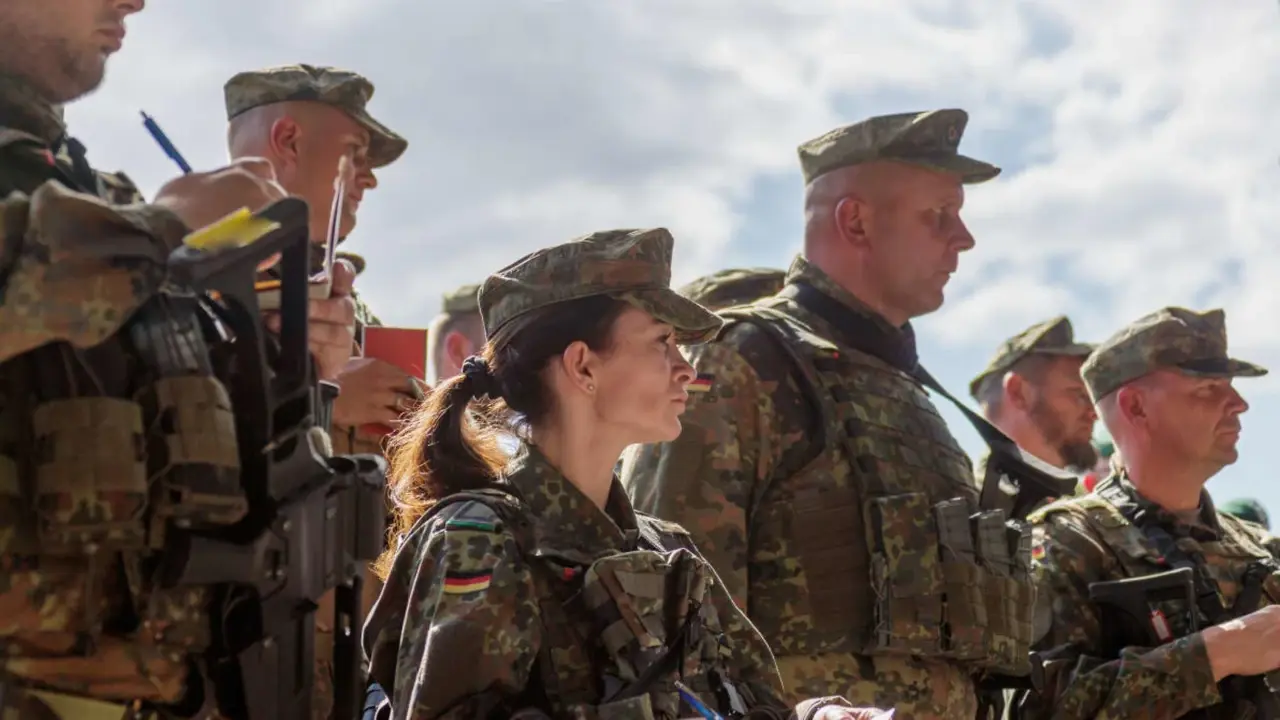
Germany has proposed a significant change in its military policy, suggesting the inclusion of foreign citizens from outside the European Union (EU) in the Bundeswehr, the German military. Defense Minister Boris Pistorius revealed the proposal, emphasizing the need to recruit an additional 20,000 troops in response to perceived threats from Russia.
While German law generally limits Bundeswehr service to citizens, there are provisions for foreigners in specific cases. The heightened recruitment efforts follow the Russian invasion of Ukraine in February 2022, with Germany seeking to reach the targeted increase in troops.
Boris Pistorius stated that such a move wouldn’t be unprecedented in Europe, citing Denmark, Spain, and Slovakia as countries allowing foreigners under certain conditions. In contrast, the UK restricts military service to its citizens and those from the Commonwealth.
Expressing concerns about potential Russian aggression, Pistorius warned that an attack on a NATO country might occur in the next five to eight years. Chancellor Olaf Scholz announced a strategic shift in German defense policy after the invasion of Ukraine, outlining plans to reduce dependence on Russian gas, provide substantial support to Ukraine, and enhance the military’s capabilities.
Marie-Agnes Strack-Zimmermann, a Free Democratic Party (FDP) member and chair of the German parliament’s defense committee, suggested considering candidates from across Europe for the German army. She envisioned inclusivity not only for EU nations but also for former EU members like the United Kingdom and neutral countries like Switzerland. Strack-Zimmermann advocated thinking more broadly and in a European context, expressing a long-term goal of a European army.
Highlighting the existing collaboration between Germany’s army and counterparts in France and the Netherlands, she argued that nationality should become less relevant within a European framework. Strack-Zimmermann suggested extending enlistment possibilities even to NATO members, depending on political developments in countries like the United States and Canada.
The Bundeswehr clarified that the proposal was not about filling gaps with foreigners but part of an open discussion led by Pistorius about the armed forces’ future. They mentioned existing exceptions for soldiers in cases of official need.
Strack-Zimmermann emphasized that allowing non-German citizens to serve would benefit individuals born and raised in Germany without German citizenship, promoting inclusivity and recognizing the diverse population.
She cited the example of Düsseldorf, where over 10,000 Greeks reside, including second or third-generation youth who, despite a long stay in Germany, may retain their original passports. Strack-Zimmermann urged a thoughtful consideration of individuals expressing interest in joining the Bundeswehr, with potential expedited citizenship for those desiring it after military service.
Rice, a staple for Christmas celebrations in Nigeria, has become a luxury this year. Soaring…
Panic erupted on Saturday at a concert in Lagos when the stage collapsed during Odumodublvck’s…
The Federal Government of Nigeria has allocated ₦6,364,181,224 billion for the refurbishment and rehabilitation of…
The black market dollar to naira exchange rate for today, 22nd December 2024, can be…
The Nigerian National Petroleum Company Limited (NNPCL) has refuted claims that the 60,000 barrels per…
Manchester City finds itself in unprecedented turmoil, with relegation-level form showing little sign of improvement.…